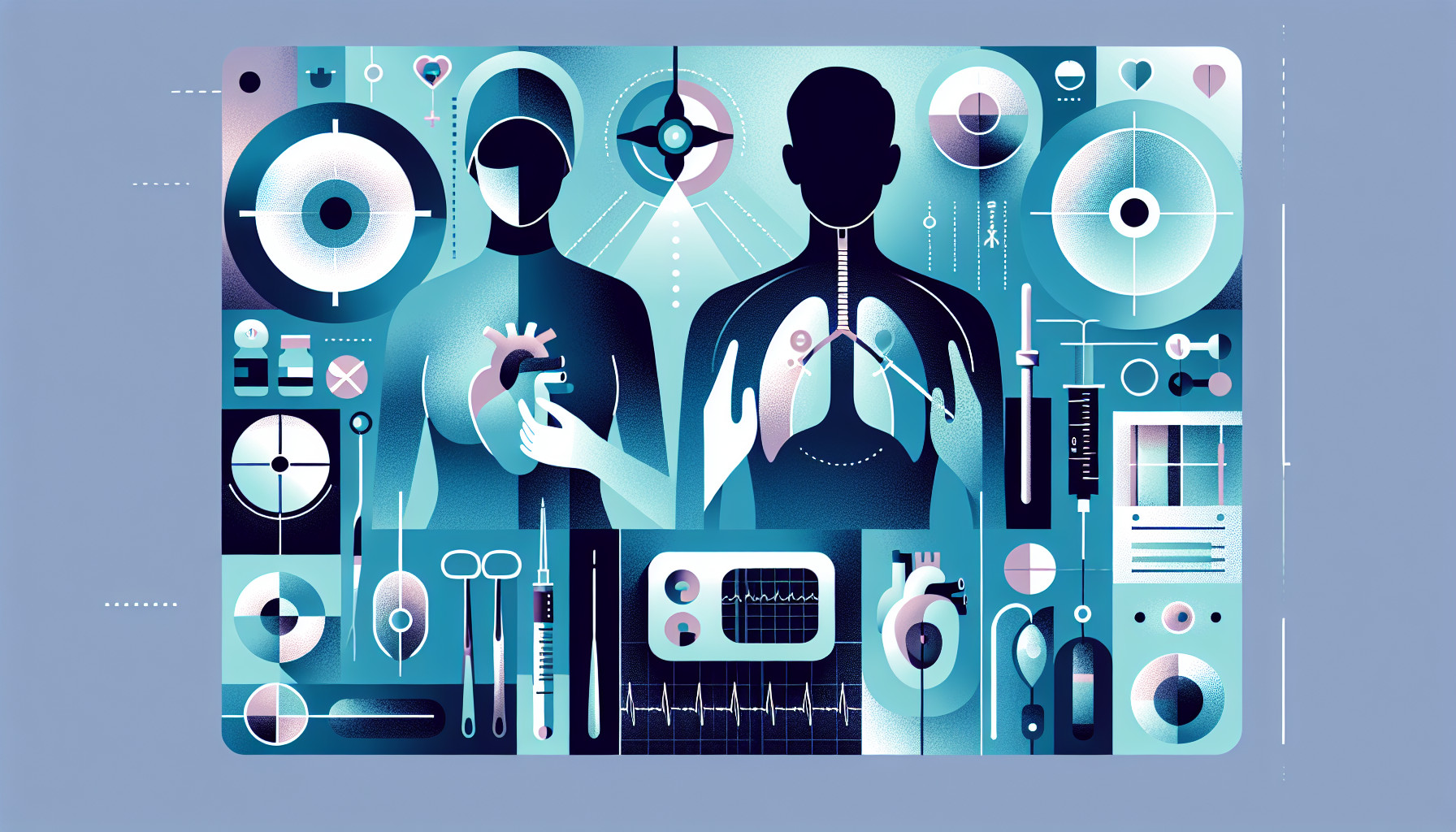Our Summary
This research paper discusses a variety of topics related to heart and lung surgery in Japan. It specifically mentions the annual report on this subject in Japan, esophageal (food pipe) surgery, and general chest surgery. The paper also refers to two significant databases: the Japan Cardiovascular Surgery Database (JCVSD) and the National Clinical Database (NCD). These databases collect and store information about heart and lung surgery cases in Japan, which can be used for research and to improve future surgical procedures. The paper likely analyzes data from these databases to discuss trends and outcomes in these types of surgeries.
FAQs
- What is the Japan Cardiovascular Surgery Database (JCVSD)?
- What types of surgeries are covered in the annual report in Japan?
- What is the National Clinical Database (NCD) and how does it relate to thoracic surgery?
Doctor’s Tip
One helpful tip a doctor might tell a patient about thoracic surgery is to follow all pre-operative instructions carefully, such as fasting before the surgery and avoiding certain medications. This will help ensure a successful procedure and a smooth recovery process. Additionally, it’s important to communicate openly with your healthcare team about any concerns or questions you may have.
Suitable For
Patients who are typically recommended for thoracic surgery include those with:
- Lung cancer
- Esophageal cancer
- Mediastinal tumors
- Thoracic outlet syndrome
- Hiatal hernias
- Achalasia
- Chest wall deformities
- Tracheal or bronchial stenosis
- Empyema
- Pleural effusions
These patients may be recommended for thoracic surgery in order to remove tumors, repair abnormalities, improve lung function, or relieve symptoms. The decision to undergo thoracic surgery is typically made by a multidisciplinary team of healthcare providers, taking into consideration the patient’s overall health, the stage of their disease, and their treatment goals.
Timeline
Before Thoracic Surgery:
- Patient is referred to a thoracic surgeon by their primary care physician or specialist.
- Patient undergoes various preoperative tests and evaluations, such as imaging scans, blood tests, and pulmonary function tests.
- Patient may meet with a multidisciplinary team to discuss treatment options and surgical plan.
- Patient receives instructions on preoperative preparations, such as fasting before surgery and discontinuing certain medications.
- Patient may undergo a preoperative counseling session to address any concerns or questions about the procedure.
After Thoracic Surgery:
- Patient is monitored closely in the recovery room immediately after surgery.
- Patient may stay in the hospital for a few days to a week, depending on the type of surgery and individual recovery.
- Patient may experience pain and discomfort at the surgical site, which is managed with pain medication.
- Patient may undergo physical therapy to help regain strength and mobility.
- Patient is instructed on postoperative care, including wound care, activity restrictions, and follow-up appointments.
- Patient may undergo follow-up imaging scans and tests to monitor recovery and assess the success of the surgery.
What to Ask Your Doctor
- What specific type of thoracic surgery do I need and why?
- What are the potential risks and complications associated with this surgery?
- What is the expected recovery time and what can I do to help facilitate a smooth recovery?
- Will I need any special post-operative care or rehabilitation?
- How experienced are you in performing this type of surgery?
- Are there any alternative treatments or procedures that I should consider?
- What can I expect in terms of pain management after the surgery?
- How long will I need to stay in the hospital after the surgery?
- What is the success rate for this type of surgery?
- Are there any long-term effects or considerations I should be aware of following the surgery?
Reference
Authors: Committee for Scientific Affairs, The Japanese Association for Thoracic Surgery; Matsumiya G, Sato Y, Takeuchi H, Abe T, Endo S, Hirata Y, Ishida M, Iwata H, Kamei T, Kawaharada N, Kawamoto S, Kohno K, Kumamaru H, Minatoya K, Motomura N, Nakahara R, Okada M, Saji H, Saito A, Shimizu H, Suzuki K, Takemura H, Taketani T, Toh Y, Tatsuishi W, Yamamoto H, Yasuda T, Watanabe M, Yoshimura N, Tsuchida M, Sawa Y. Journal: Gen Thorac Cardiovasc Surg. 2024 Jan;72(1):61-94. doi: 10.1007/s11748-023-01979-8. Epub 2023 Nov 28. PMID: 38015364
